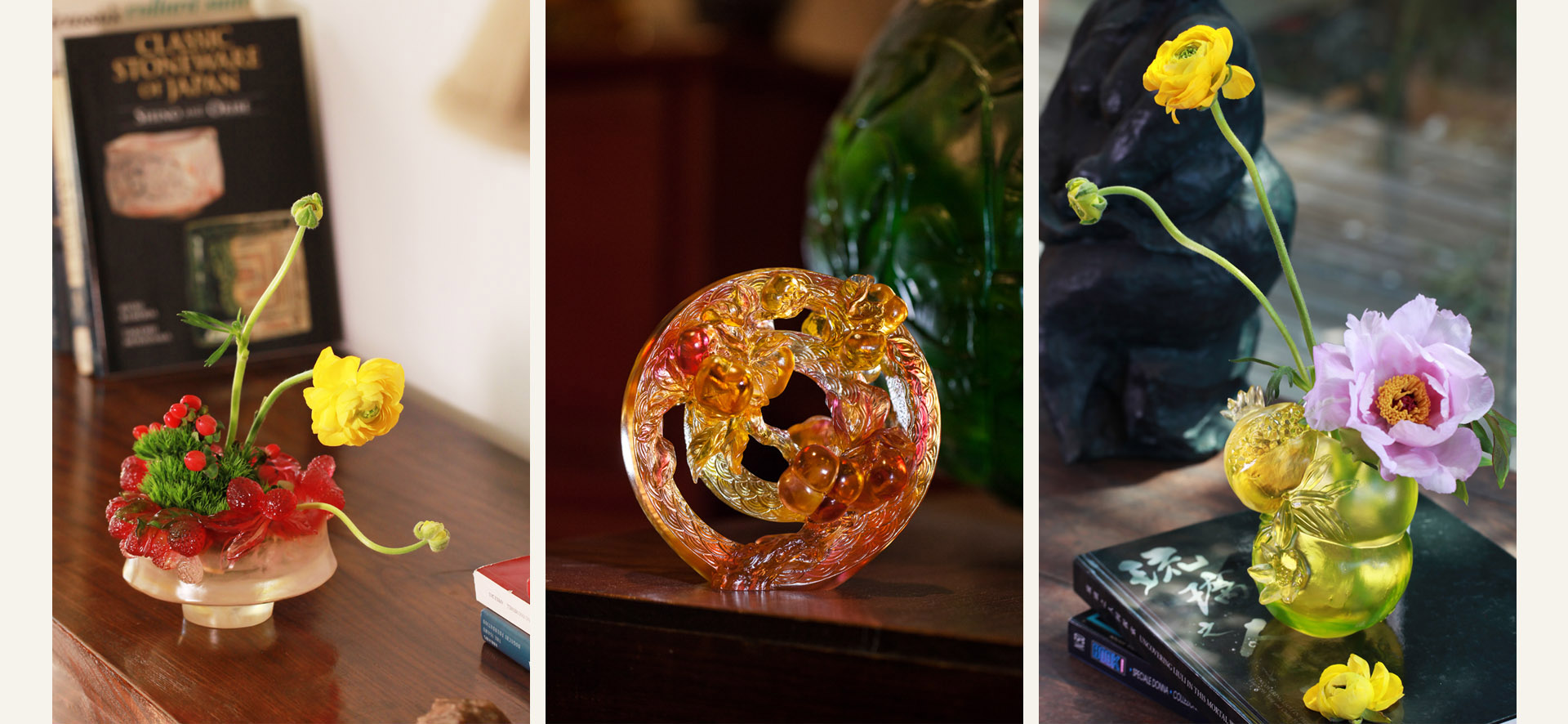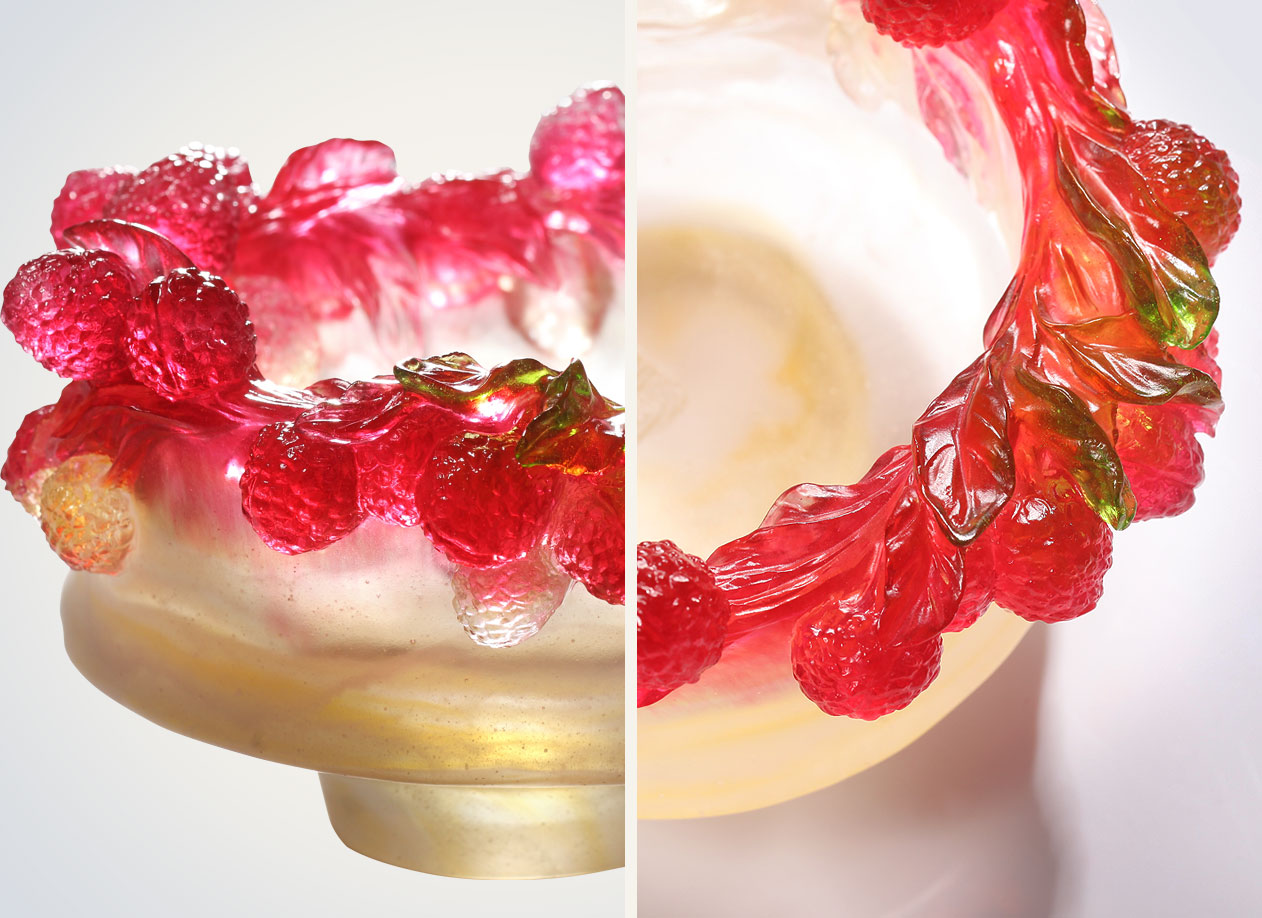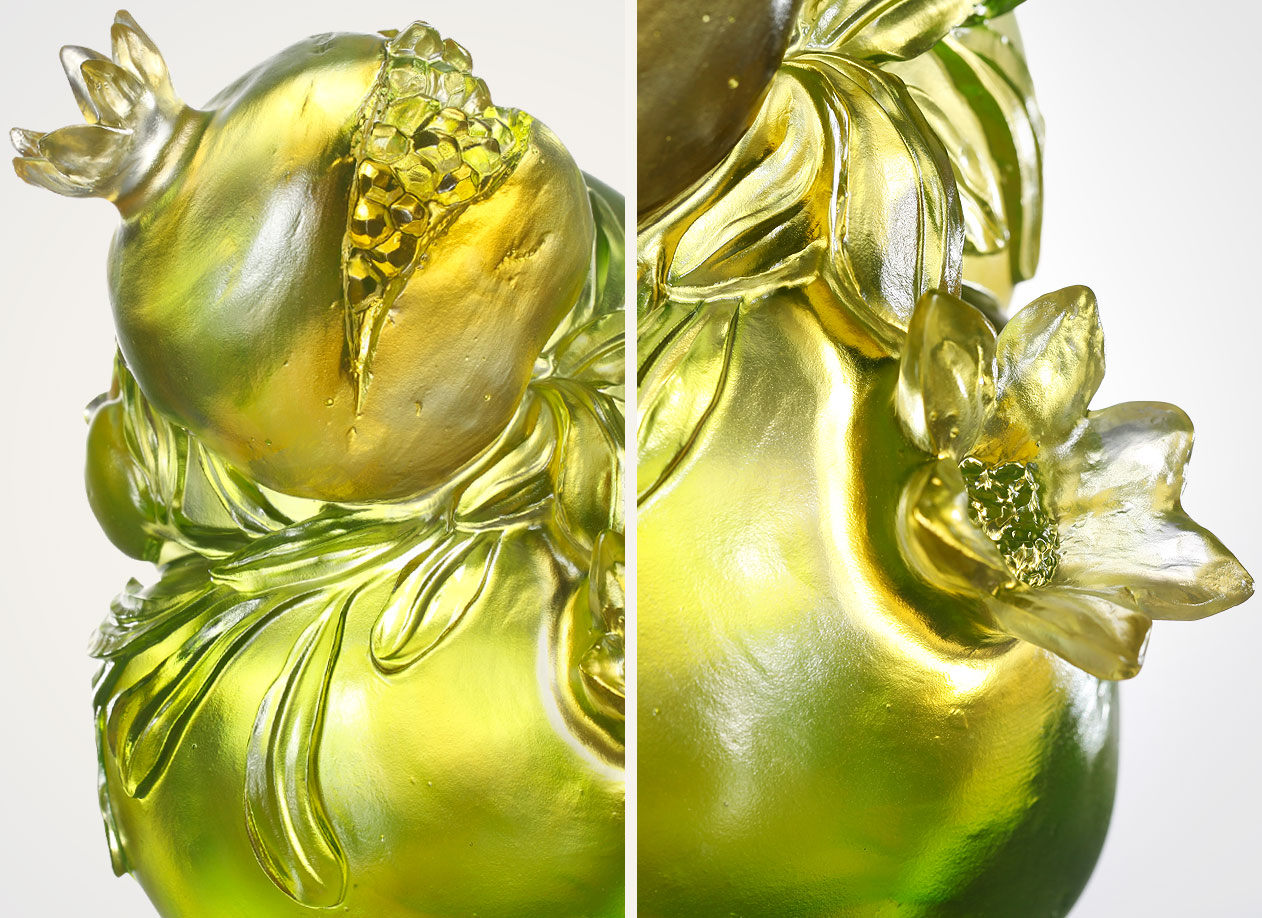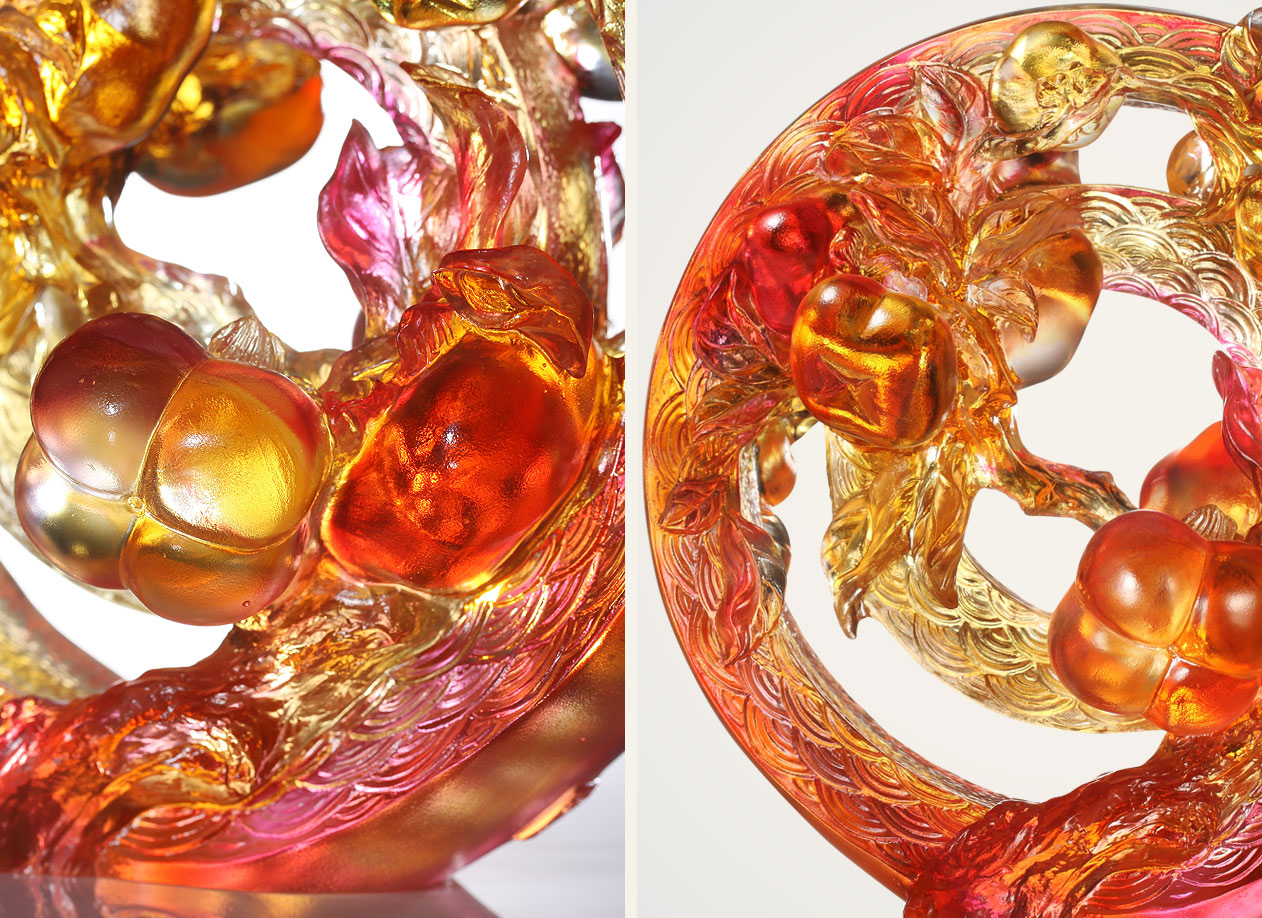

The Fresh Delights and Eternal Joy series are inspired by literati paintings. Qi Baishi’s paintings are sketched and interpreted through his feelings and perception. The process of painting is not merely about depicting forms but manifesting their essence. When appreciating Qi’s works, one can never stray too far from personal emotion. Qi teaches us that the deepest empathy can and should strike us at any time.
He often hold compassion and affection for all creations in this world, especially towards the most ordinary and subtle aspects of life. Through exquisite craftsmanship, Liuli creates shapes to unaffected innocence and youthful curiosity of lychees, pomegranates and persimmons inspired from Qi Baishi’s paintings. When Qi Baishi's paintings meet the vision of LIULI, ordinary life becomes poetic and scintillating.

Loyally personifying the
beautiful imagery of the lychee
Qi Baishi loved such seals as
“Great Luck, Great Profit”, In his lychee paintings,
The word “Richer” is often written,
Because “Lychee” is homophonic with “Profit”,
Symbolizing “Auspicious” and “Wealthy”.
In A Thousand Blessings and Good Fortune,
the LIULI uses precise glass coloring techniques,
Making the bright red and emerald colors passionately interpret
Qi Baishi’s ink wash painting under a 1400° high temperature
furnace. The irregular shape and simple coloring complement
each other, restoring the handmade texture and warmth. Under
the light and shadow, it’s like a basket full of lychees,
Elegant collectors can arrange flowers and store items in
the vessel, Celebrating this sweet and joyful season.


An‘eccentrically’
brilliant friend
Qi Baishi often paints pomegranates, with thick ink strokes,
simple and concise dotting, forming the natural unevenness
of the fruit skin; The branches and leaves stretch densely,
and the large pomegranate reveals crystal clear grains; It
is said that these fruits and vegetables that Baishi loves
to paint, which are all things he has grown and eaten since
he was a child.
The design concept cleverly connects the “truth” and “weirdness”
of Qi Baishi’s literati painting. The work is “anthropomorphized”,
allowing three simple-shaped pomegranates to stack and twist… Like
8 but not 8, like a gourd but not a gourd. Then put on a pomegranate’s
iconic “open-mouthed smile”. Playfully interpretingthe full belly of
talent that can’t be hidden. In terms of design, like Qi Baishi’s
simple and concise ink dotting. The work removes its decoration and
retains the texture of the surface, With a refreshing gradient of
yellow and green streaks, it becomes a moment of ink wash, Placed on
the case, in front of the bright window, The viewer can follow the
imagination and freely shuttle through the changes in the world of
light and shadow.
“Wealth”and“Kindness”
exist simultaneously !
Fresh Delights, also known as “New Blessings”.
All things grow, endlessly. Expressing the cyclical and
regenerative power of the earth, every day, every moment,
evokes transformation or changing joys.
The roots of the tree firmly grip the earth, signifying resilience,
while the persimmon tree grows enthusiastically, suggesting vigour.
The concentric circles convey the ceaseless nature of the natural
world, while the negative spaces bring a sense of “breathability”
to the artwork. The shallow relief of Song Dynasty waving water
patterns on the surface indicate wealth, auspiciousness, and fire
suppression. Meanwhile, the harmonious concurrence of trees with
water suggests good weather and abundant harvests, embodying Eastern
philosophical views such as “the highest virtue is to be like water”
and “water sustains all things”. This portrayal of the persimmons’
growing state, exudes the ample fruitfulness that occurs in nature.
Though the result appears effortless, the intricate multistep
process of lost-wax casting – the pinnacle of negative space
sculpturing – was used to achieve this lifelike artwork.



Flowers nourish our Qi
Through the ingenuity the florist, blossoms and vases
complement each other. The flowing Qi fills the room,
enhancing the aesthetic atmosphere of the space. Liuli
flower vessels, unlike pottery or porcelain, possess a
unique clarity and translucency. Playing with light and
shadows, reminiscent of impressionist oil paintings,
Liuli can sway the mood and brighten the space around it.
The four noble arts popularized in the Song Dynasty of
China: Incense, Painting, Tea, and Flower Arrangement.
Teaching us to savour life through our sense of smell,
sight, taste, and touch, daily life can be elevated to
the realm of art. As spring approaches, why not add a
sense of ceremony by personally arranging your own
bouquets? We can refresh our humour whilst beautifying
the air we breathe.



Fresh Delights and Eternal Joy
Continuous Curiosity, daily happiness
